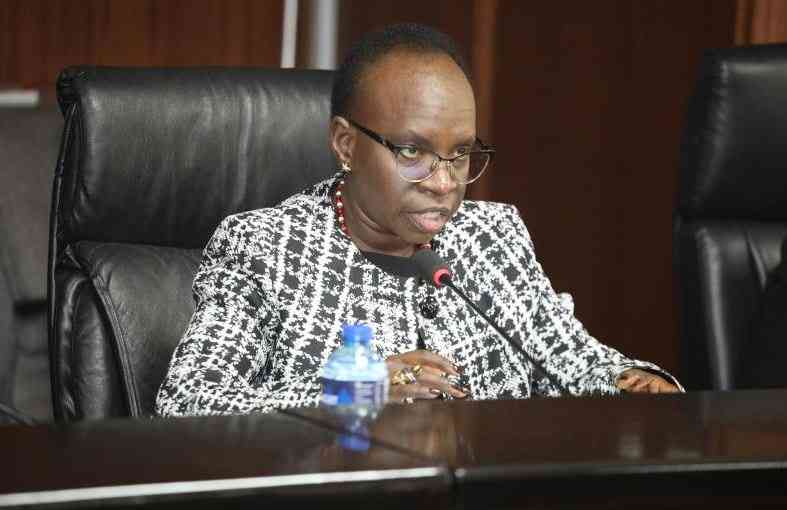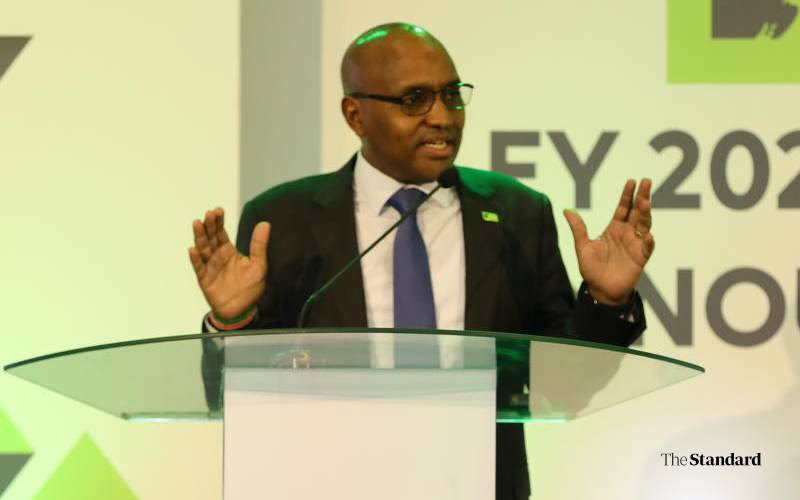
The Kenya Railways Corporation is on the spot over failure to settle an avoidable amount of Sh34 billion, covering interest and penalties accumulated from an Exim bank loan, which financed the Standard Gauge Railway (SGR) project.
Auditor-General, Nancy Gathungu, said in her report for the year ended June 2024 that failure to meet obligations when due has attracted avoidable expenditure of Sh34.1 billion in the form of penalties amounting to Sh5.3 billion and interest of Sh28.85 billion, which could have otherwise been avoided.
Gathungu explained that the financial statements reflect a balance of Sh646 billion in respect of the Exim bank loan.
“Included in the amount is Sh28.85 billion being interest on loan capitalised due to the Corporation’s failure to settle payments when due. Further, as disclosed in the financial statements, is an amount of Sh5.3 billion being default penalties payable that has accrued from the Corporation’s failure to settle on-lent loan due,” Gathungu said.
Comprehensive income
She has also flagged weaknesses in revenue collection for the old Metre Gauge Railway (MGR). The report shows that the statement of profit or loss and other comprehensive income reflects the main income amount of Sh21.5 billion.
Included in the amount is Sh2.2 billion in respect of MGR revenue, out of which an amount of Sh133.8 million related to revenue from Nairobi Commuter Railway.
She, however, flagged anomalies, saying that despite the Corporation having employed revenue inspectors, commuter service trains are usually congested, making it difficult for inspectors to confirm that all passengers were receipted.
“This may result in passengers not paying, hence potential loss of revenue. Payment through M-Pesa was not well managed and coordinated. It was noted that cashiers prioritise receipting cash customers and then M-Pesa customers,” she said.
And considering that the train has different boarding and alighting stations along the route, the Auditor-General said it was likely that M-Pesa customers may alight before they were receipted.
Similarly, internal controls on handling issued receipts at the main railway station exit were noted to be weak, with the receipts being dropped in an open tray.
To this end, Gathungu said it was likely that the same used receipts could be used later, either in the evening or the next day, since used receipts are not being safeguarded or destroyed. “In some instances, M-Pesa customers only displayed the message to the cashier, and the cashier requested the customer to read out for him/her the M-Pesa reference number. Considering that there are instances where dishonest people tamper with numbers, chances of the cashier recording doctored messages could not be ruled out,” she explained.
She also said the cashiers who gave out tickets were the same people who walked around to check the tickets, and lack of segregation of duties could easily lead to collusion and loss of cash.
According to the Gathungu, the inspectors/supervisors are mostly not on the train to check the tickets, and in the circumstances, the effectiveness of internal controls on revenue collections in the commuter service trains could not be confirmed.
On contingent liabilities, Gathungu said that the financial statement showed a balance of Sh28.1 billion.
Stay informed. Subscribe to our newsletter
“I draw your attention to the fact that the Corporation is at risk of operations interruption should the contingent liabilities crystallise. My opinion is not modified in respect of these matters,” she said.
